Coronavirus: Why the fashion industry faces an 'existential crisis'
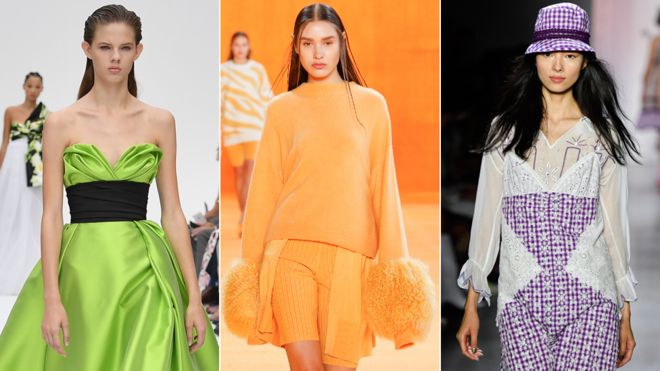 GETTY IMAGES
GETTY IMAGES
Normally, at this time of year, many of us would be curating our perfect summer wardrobe as we prepare for sunny weather and foreign holidays.
Instead, clothing sales plummeted by 34% in March as much of the world's population is currently unable to travel abroad or even socialise amid lockdown restrictions.
"No-one wants to buy clothes to sit at home in," as Next's chief executive Simon Wolfson put it last month.
The fashion industry has been negatively impacted by the coronavirus outbreak on every imaginable level; production has ceased, retailers have closed, demand has plummeted.
"It has led to a real existential crisis for the fashion industry," says Imran Amed, the founder and CEO of The Business of Fashion, a leading industry website which has produced a report about the impact of the coronavirus outbreak.
"This is an industry which is still almost entirely dependent oh physical retail. More than 80% of transactions in the fashion industry still happen in physical stores.
"Added to that, many consumers simply aren't interested in buying clothes right now. There's so much focus on purchasing essential items to survive during the lockdown and I think everyone's minds have naturally been focused on that. So fashion just becomes an after-thought, or no thought at all in that kind of context."
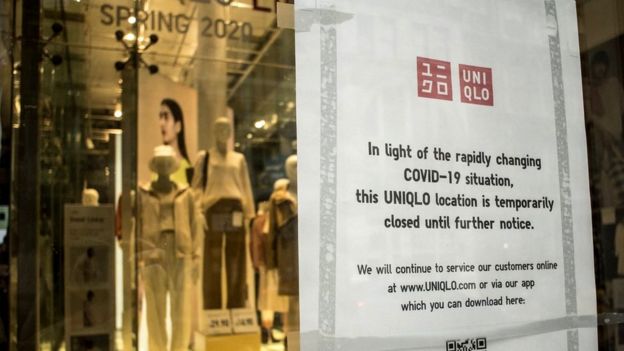 GETTY IMAGES
GETTY IMAGES
With sales so low, there are questions about what will happen to the existing stock of clothes building up in stores and warehouses.
"Unlike food or some medicines, [fashion] products do not go off. But many go out of style," noted The Economist. "Sometimes, as with seasonal apparel collections, rather quickly."
In an effort to maintain some income, many high street retailers are selling anything they're able to at significantly discounted prices online.
Gap and H&M, for example, have been offering mid-season sales, while Uniqlo is promoting discounted comfort-wear items people are likely to need at home, such as jogging bottoms and leggings. (Browns in London has reported a 70% increase in sales of loungewear.)
It's likely more brands and retailers will offer discounts as time goes on, Amed notes, which will damage profit margins, but he is hopeful that the fashion calendar being out of sync won't be as big an issue as many fear.
"We always have to remember there are two hemispheres in the world, so when it's summer in one place it's winter in another," he says. "And I think there are creative ways we could think of to redistribute those collections.
"But as for clothing going out of style, there are just so many different kinds of trends and aesthetics now that I think the idea of things being in or out of style is less marked now than it was maybe 10 or 15 years ago.
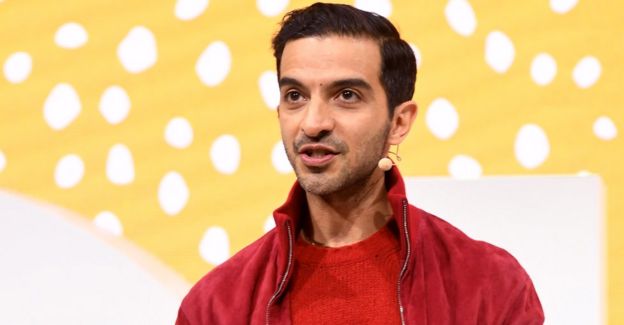 GETTY IMAGES
GETTY IMAGES
"I've actually heard of some designers who are saying, 'the collection I showed for spring/summer 2020, we're just going to sell that in spring/summer 2021'. That won't be a solution that works for every brand, but I think getting through this situation is going to require some real lateral thinking and creativity."
With sales currently low, many brands have suspended advertising - although some continue to use social media influencers to promote products.
Emily Canham, who has more than 700,000 Instagram followers, regularly promotes services and products including health foods, make-up, streaming services, holidays and clothes.
"For me right now it's really about listening to my followers about what feels appropriate," Canham tells BBC News. Some of her recent posts have been reflective of her current lifestyle under lockdown - not always necessarily promoting something.
She adds: "My followers generally wear what makes them feel great and powerful rather than adhering to traditional seasonal trends. It's about how you wear it, not what season it's worn in."
As things stand, it's not clear whether September's Fashion Weeks will go ahead in London, Paris, New York and Milan, and if so what form they may take - designers could potentially broadcast fashion shows online if social distancing measures are still in place, for example.
May's Met Gala, an annual highlight of the fashion calendar, has already effectively moved online, with Billy Porter encouraging people to recreate their favourite red carpet looks at home.
But even once the coronavirus pandemic has settled somewhat, however long that may take, there are questions about what the fashion industry will look like.
"I feel very strongly that when we come out at the other end, people's values are really going to have shifted," Vogue editor Dame Anna Wintour said last week.
"I think it's an opportunity for all of us to look at our industry and to look at our lives, and to rethink our values, and to really think about the waste, and the amount of money, and consumption, and excess that we have all indulged in and how we really need to rethink what this industry stands for."
The fashion industry is hugely polluting, producing about 1.2 billion tonnes of carbon emissions per year - and for some time has been under huge pressure to become more sustainable.
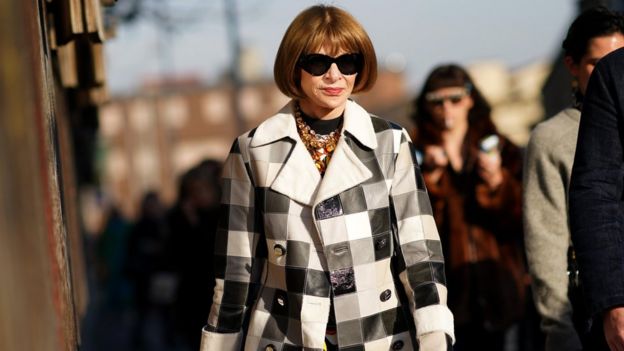 GETTY IMAGES
GETTY IMAGES
Much has been made of the damaging effect of so-called "fast fashion" in particular, where consumers buy something cheap, hardly wear it and then throw it out. It was the subject of a BBC Three documentary last year.
Dame Anna said the industry will need to "slow down" so that people can "enjoy it much more" without always looking for the next new thing.
"The conversation about sustainability and the fashion industry has been going on for a long time now, so this is not a new conversation, but I do think this situation is a great accelerator," Amed says.
"It's going to accelerate the fashion industry's engagement with digital technology, and its desire to rethink the fashion calendar, but it will also accelerate the approach to sustainability and building responsible businesses. That means using supply chains that are creating clothing in a circular way and take into account the impact on the planet and the people who make our clothes."
With regards to the current build-up of inventory, he adds: "There was a time when certain companies and brands would destroy products but that's become a practice which is frowned upon now."
Dame Vivienne Westwood has been a particular champion of sustainability, teaming up with green organisations and making her business more environmentally efficient.
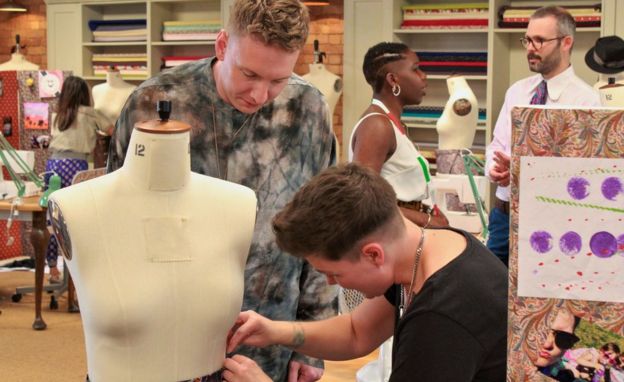
At a time when sustainability and financial restraints are at the forefront of people's minds, the launch of the latest series of The Great British Sewing Bee on BBC One could hardly have been more appropriate.
Like The Repair Shop, it provides practical tips and encourages creativity and craft at home - an antidote to a culture of binning something and buying a new one.
"Last year, home-made clothes seemed as old-fashioned as steam trains and oil lamps," said The Daily Mail's Christopher Stevens in his review of the show. "But if lockdown goes on much longer, we'll all be at it."
That would spell financial catastrophe to the fashion industry, which was generating $2.5 trillion (£2.02 trillion) in global annual revenues before the pandemic hit.
"We're going to see a wave of insolvencies and bankruptcies as the year continues," Amed says. "This is the largest crisis that the modern industry has ever faced."




/product/44/303993/2.jpg?2398)











No comments
Post a Comment